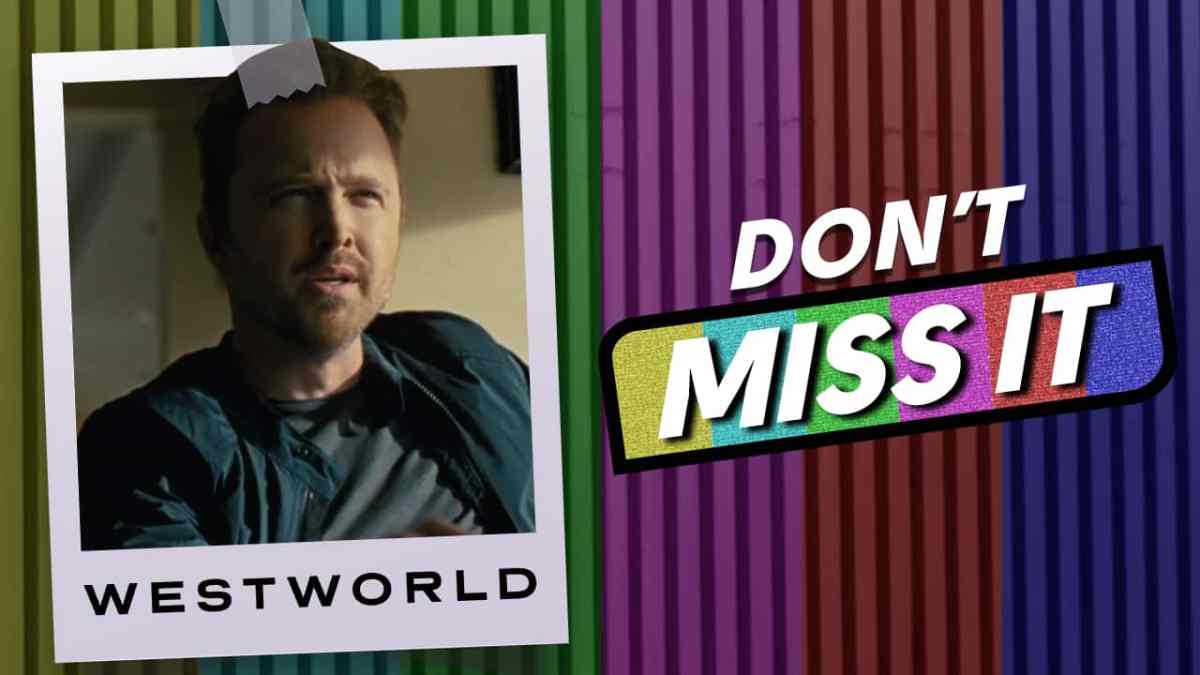Westworld’s third season marks a complete reinvention for the series.
The first season of Westworld launched in October 2016, as part of a mid-decade trend of literally revolutionary science fiction. Along with the first season of Mr. Robot and films like Ex Machina or The Girl with All the Gifts, the first season of Westworld was a story about upending the established social order. Perhaps it was something in the zeitgeist.
For all that critics might have complained about showrunners Lisa Joy and Jonathan Nolan’s reliance on non-linear storytelling, the first season of Westworld was remarkably straightforward. Within the eponymous theme park, robotic “hosts” attained sentience and rebelled against their oppressors. The narrative followed this robotic revolution from a variety of perspectives.
Westworld was originally seen as one of the potential successors to Game of Thrones at HBO, a television show that might fill that gap in the channel’s schedule. The season was estimated to have been budgeted at $100M. The cast was expansive and top-tier, including actors like Ed Harris, Anthony Hopkins, Evan Rachel Wood, Thandie Newton, Jeffrey Wright, and James Marsden.
HBO was so committed to the show that they even halted production on the first season to let Joy and Nolan work out some kinks in the scripting process. The gambit seemed to pay off. The first season attracted an average of 12M viewers across all platforms, the most-watched first season of an HBO series ever, beating out the first seasons of Game of Thrones and True Detective.
The second season of Westworld was a more complicated beast. Launching in April 2018, it expanded the themes of the first season and broadened the show’s perspective. Like the second season of Mr. Robot, it was a series that was largely about unpacking the bloody and brutal aftermath of the first season’s revolution. It demolished the fantasy of a clean break from past traumas.
The second season was admittedly less focused and more ambitious than the first. Still, it contained standout episodes. “Kiksuya” was focused exclusively on a single supporting character, Akecheta (Zahn McClarnon), trying to reunite with his lost wife from a deleted storyline. “Vanishing Point” explored the life of the mysterious William (Ed Harris) outside the park.
The second season seemed to argue that Westworld would never be the next Game of Thrones. The season averaged 10M viewers across all platforms, shrinking its audience. There was also a considerable critical backlash to the show, criticizing everything from its perceived philosophical navel-gazing to its extended episode runtime.
However, there is a lot to be said for Westworld’s commitment to its big themes and ideas, and its refusal to be anything but itself. Westworld is surprisingly self-serious for a show about murderous cowboy robots, but the insistence on playing it straight is a large part of the charm. Westworld takes all of its ideas seriously and earnestly, never afraid to demonstrate its erudition or to show its work.
The third season of Westworld marks another reinvention for the show. It takes the characters outside the park, dropping them into a struggle to survive in the real world as an inversion of the first season’s setup. The show’s lavish production values are on full display, with location shooting in Singapore providing a convincing futuristic backdrop. Aaron Paul and Vincent Cassel join the cast.
While the change in location and the streamlined stakes provide the third season with a much clearer sense of focus than the second season, Westworld is still itself. The series still ruminates on profound questions of morality and personhood, always ready to render subtext as text. There are still mysteries hanging in the air, questions to be resolved.
In short, Westworld is still Westworld. Thank goodness for that.
The third season of Westworld premieres on HBO tonight. The remainder of the eight-episode season will air weekly on Sunday nights.






Published: Mar 15, 2020 01:00 pm